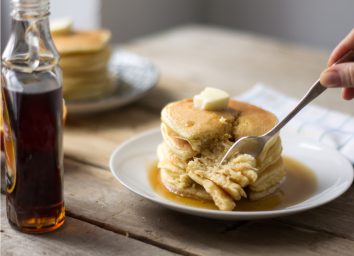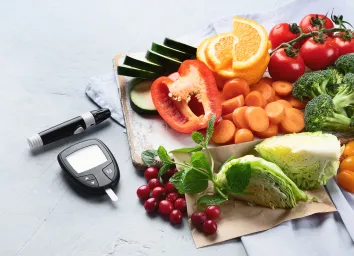Drinking Habits You Must Follow If Diabetes Runs in Your Family

If someone in your family has type 2 diabetes, consider it a wake-up call; it means you are at increased risk of developing the disease. Studies of twins have determined that genetics “play a very strong role in the development of type 2 diabetes,” according to the American Diabetes Association.
Here’s another way to see if you’re a prime candidate for this metabolic disease: Look in the mirror or stand on a weight scale. Being overweight or obese is associated with diabetes, too. A recent study in the journal Diabetologia shows that obesity boosts the risk of developing type 2 diabetes “at least six times, regardless of genetic predisposition to the disease.”
So, clearly, lifestyle (your diet and exercise habits) and genetics play key roles in your risk of type 2 diabetes, but you can change only one of them—your lifestyle. And because our drinking habits impact our weight and belly size so significantly, that’s the best place to make some changes, nutritionists say. Think about this: various surveys show that the average American gets 7% to a high of 22% of his or her daily calories from sugary beverages. So, there’s much room for improvement by skipping the soda fountain. (Taking this #1 Best Supplement for Prediabetes will help, too.)
Read on for the list of drinking habits you must follow if you are at risk for diabetes, and for more on how to eat healthy, don’t miss The #1 Best Juice to Drink Every Day, Says Science.
Nix sugary beverages
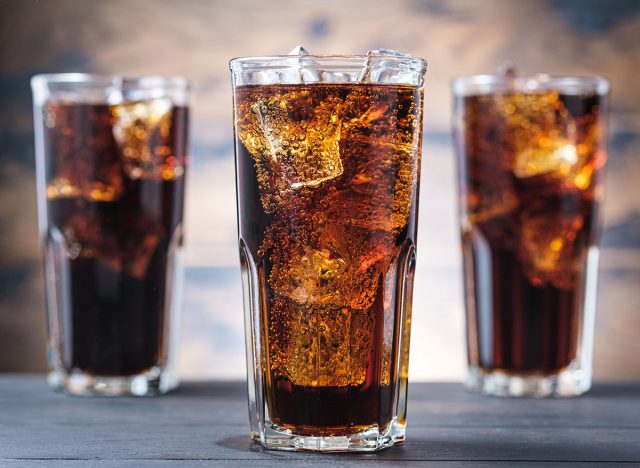
Over time, consuming excessive amounts of sugar can cause weight gain, insulin resistance, and elevated blood glucose readings. While drinking sugar-sweetened beverages (SSBs), doesn’t mean you’ll definitely get diabetes even if the disease runs in your family, “research has shown that drinking more soda, sweet tea, juice, and other SSBs is associated with increased risk of type 2 diabetes and many other health conditions,” says Emily Rice, RD, a registered dietitian at The Ohio State University Wexner Medical Center.
Significant research has linked soda consumption to metabolic diseases like heart disease and diabetes. Recently studies have found that people who drank one sugar-sweetened beverage a day had a 27% greater increase in the amount of belly fat over a six-year period compared to people who didn’t consume sweet drinks and drinking on SSB per day was also associated with a 22% increase in type 2 diabetes risk.
Chug water
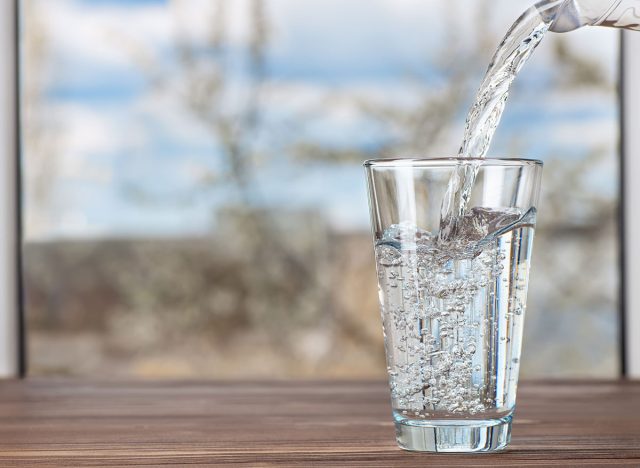
This really works: Drink more water all day long. Quenching your thirst this way will keep you from reaching for sugary thirst quenchers and is one way to decrease your diabetes risk through beverages, says Rice, who recommends aiming for “at least 64 ounces per day unless told otherwise by your medical provider.” Note that unsweetened beverages like black coffee and unsweetened iced tea count toward your water quota.
Try green tea

“Green tea’s catechins (natural compounds) and caffeine have been shown to have fat-fighting properties,” explains registered dietitian nutritionist Holly Klamer, MS, RDN, who contributes to My Crohns and Colitis Team.
A study 2012 study in the Journal of Functional Foods found that women who drank green tea daily for 12 weeks had significantly lower visceral fat compared with women who didn’t drink green tea. So, a habit of drinking green tea is a good step toward avoiding a key risk factor for diabetes—carrying a lot of belly fat.
But those catechins in green tea may have an even more direct impact on blood sugar control. One study that followed people with diabetes found that participants who drank green tea three times a day for four weeks experienced a positive effect on their insulin resistance, meaning their bodies were better able to manage blood sugar surges following meals. In addition, green tea drinkers improved their HDL (good) cholesterol levels.
Skip happy hour
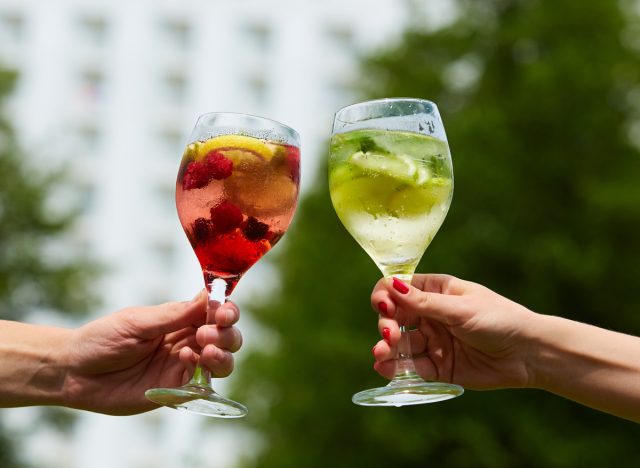
Some studies suggest that moderate consumption of alcohol may have a protective effect against type 2 diabetes. Other studies show that you only get the benefit if you drink alcohol with a meal. Still, other studies suggest that limiting alcohol or abstaining is associated with a lower risk of diabetes. If you don’t drink, don’t start drinking with hopes of gaining a protective effect of alcohol. And if you do drink, limit alcoholic beverages according to the current Dietary Guidelines for Americans, recommends Rice.
For more on alcohol and your health read Ugly Side Effects of Drinking a Glass of Wine Every Day, According to Science.

